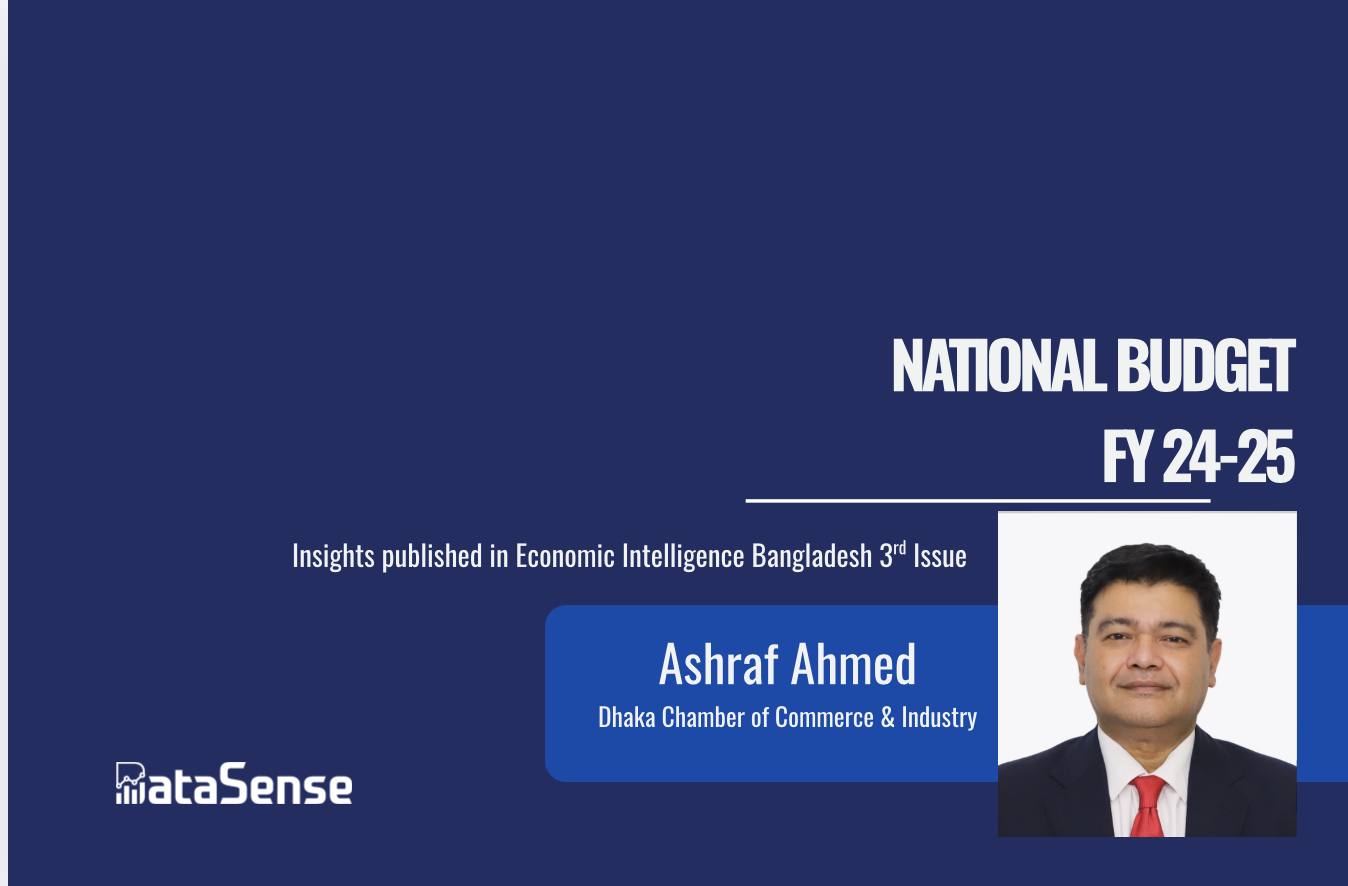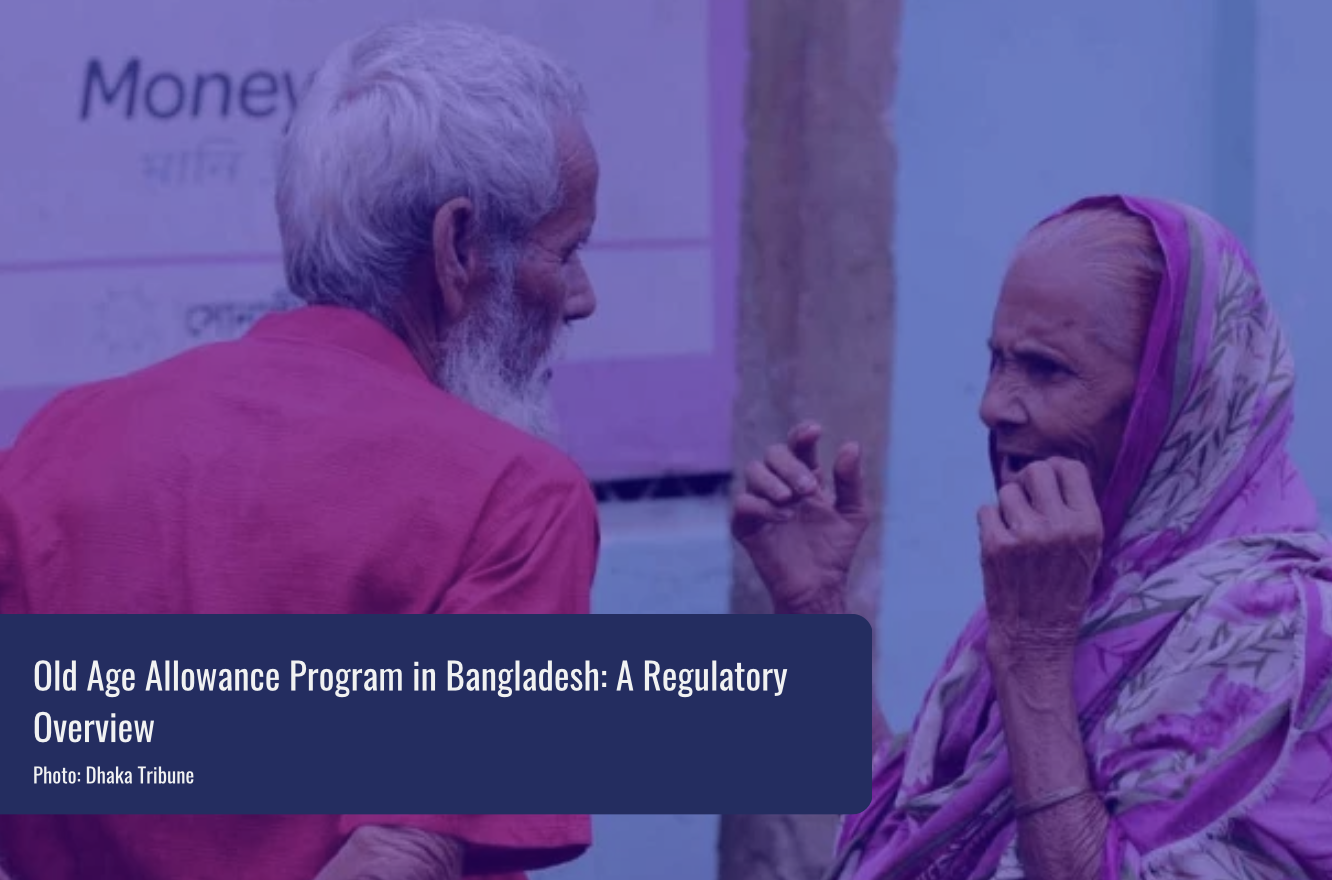DataSense recently interviewed Ashraf Ahmed, DCCI Representative, to capture the business community’s views on the core challenges and necessary reforms for Bangladesh’s National Budget in Fiscal Year (FY) 2024-25. His analysis stresses that the budget must focus on restoring stability while proactively preparing the economy for the 2026 LDC graduation.
Top 3 Macroeconomic Challenges
The upcoming budget must prioritize overcoming three key obstacles to ensure sustainable growth:
- Inflationary Pressure and Balance of Payments (BoP): Managing high inflation and correcting the persistent imbalances in the BoP are critical for stability.
- Liquidity Pressure in the Banking System: Addressing the current tight liquidity conditions in the banking sector is essential to support private sector borrowing.
- Return to Macroeconomic Stability: All fiscal and monetary tools must be aligned toward achieving macro-stability, which is essential for business confidence.
Crucially, the 2026 LDC graduation must inform every budgetary decision, making preparation for post-graduation challenges a central theme.
Strategic Reforms: Revenue and Efficiency
The primary path to macro-stability and sustainable public finance lies in comprehensive reform of revenue collection and expenditure management.
1. Enhancing Revenue Collection
Mr. Ahmed points out that low tax compliance remains a major hurdle. With 12 million TIN holders, only about 30%currently file income tax returns.
- Tax Net Expansion: The National Board of Revenue (NBR) must expand the tax net to include more eligible citizens, leveraging the positive trend observed after making Proof of Submission of Income Tax Return (PSR)mandatory.
- Automation and Simplification: To increase efficiency and curb discretion, the tax process requires immediate automation and simplification.
- Tax Policy Coordination: A dedicated Tax Policy Unit is urgently needed to coordinate tax strategy with the country’s industrial and trade policies. This unit would identify emerging sectors with high revenue potential and provide necessary incentives for their growth.
- Customs Duty Rationalization: Tariff structures should be rationalized to support trade policy objectives.
2. Improving Revenue Expenditure Efficiency
Inefficient government spending often leads to low development expenditure, which prevents economic objectives from being met.
- Automation for Fiscal Space: Government services must adopt automation and technology to decrease operational expenditure. This efficiency gain is crucial for creating the fiscal space necessary to fund policy and development priorities.
Deficit Financing and Crowding Out
The method of financing the budget deficit must be carefully managed to avoid negative repercussions on the private sector.
- Avoiding Crowding Out: Historically, when the government funds the deficit by borrowing from the domestic banking system (e.g., via T-bonds), it leads to a crowding out effect, limiting credit availability for the private sector. This, in turn, suppresses private investment and employment growth.
Recommended Deficit Financing Remedies:
- Foreign Loans and Private Capital: The government should prioritize increasing reliance on foreign loans and engaging private capital.
- Public-Private Partnership (PPP): Utilizing PPP projects for infrastructure allows the government to spread major capital expenditures over a decade, alleviating pressure on the current year’s budget and encouraging private investment recovery.
This content was originally published in Economic Intelligence Bangladesh’s 3rd Issue





